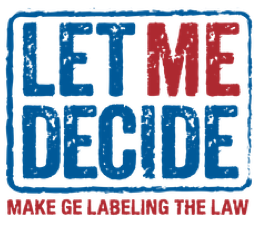Three Reasons Why GMO Labeling Is a No Brainer
by Addison Del Mastro | February 6, 2014

With votes on GMO labeling in Washington state and Hawaii in the news recently, and industry defenders pointing to the scientific consensus that genetically engineered (GMO) foods are safe, it’s time for some new arguments in support of labeling and consumer information.
The argument most prized by agribusiness giants and their defenders against GMO labeling is that there are no real health or safety risks with GMOs. They suggest that labeling laws simply serve to scare or even mislead consumers by implying that there is something to worry about.
While many are not yet convinced that GMOs pose no risks, let’s assume for a moment that the scientists are correct. But does this really mean that there’s no justification for GMO labels? Absolutely not. Here are three arguments for labeling that do not require any fear of GMOs at all:
1. The notion that labeling is meant to imply, or is needed only to warn against, a risk is simply wrong.
Country-of-origin labels, for example, are common and for many products mandatory, although most imported foods pose no risk. For that matter, one might as well ask why certain harmless food ingredients or additives are labeled, or why calories are listed on fast food (we already know it’s unhealthy, after all). Even juice made from concentrate must be labeled as such. In most cases, there’s no “scientific justification for special labeling”—it’s simply a matter of information.
The idea that labeling is necessary only to highlight risk is downright odd, if you think about it. Allowing this idea to take hold would undermine the entire concept of a right to information, which underlies most of our food labeling. There are countless reasons why someone might want to know more about what they are consuming, and there are plenty of precedents for such labeling in law and practice. Reasons might include the desire to support domestic industry, which is aided by country-of-origin labels; the desire to avoid certain allergens or other ingredients to which one is averse; or the desire to support small and sustainable business... which leads to the second argument for labeling:
 2. Any product containing GMOs is likely produced using unsustainable industrial agriculture methods, and underwritten by an agribusiness giant like Monsanto.
2. Any product containing GMOs is likely produced using unsustainable industrial agriculture methods, and underwritten by an agribusiness giant like Monsanto.
GMOs are used and grown mostly by large conventional farms and, more importantly, GMO seeds are sold almost exclusively by Monsanto and a few other large agribusiness corporations. This system of production undermines the future of small, sustainable farming, as well as environmental health overall. In other words, GMO foods are a proxy for unsustainable agriculture, even if they are themselves harmless. This may be the real reason that agribusiness companies are so fearful of labeling: it would allow consumers to easily separate their products from more sustainable alternatives.
Think about it. No product is labeled “Monsanto” in the supermarket. And commodity items like vegetables, meat, and fish often are not labeled or branded at all. Not only do you not know if the cereal you just bought contains genetically modified corn, you may not know who grew the crop or produced the original seeds (and the same is true even if you buy actual ears of corn). A GMO label would essentially be a “brand” label for Monsanto! And more than likely, Monsanto doesn’t relish the idea. It is largely by staying hidden that giant agribusiness companies have come to dominate our food system. The lack of labels allows these large corporations to remain invisible and anonymous. This violates the ideals of our free enterprise system and essentially gives an unfair advantage to a tiny group of corporations, at the expense of consumers.
3. Finally, there is the simple but powerful argument of consumer sovereignty—i.e., “the customer is always right.”
The opponents of labeling laws present fear or dislike of GMOs as irrational. Even if this is true, as consumers we should merely say, so what?
Merchandisers are more than happy to exploit our irrationality when it works for their bottom line. They are glad to sell us a new fridge and range when the dishwasher breaks so that all of our kitchen appliances have matching colors. They’re glad to rake in the cash while we wait in multi-hour lines on Thanksgiving night to save $50 on a television.
In fact, advertising and merchandising books are replete with celebrations of consumer irrationality—marketers love it. But they don’t love it when our irrationality hurts their profits. This means that the opponents of labeling, despite their appeal to a scientific consensus, are not fighting for scientific integrity but for their own bottom lines. A GMO labeling law would preserve the right of agribusiness companies to sell GMO foods while protecting our right not to buy them. Both are necessary.
Let’s say Monsanto and the corporate defenders are right, and GMOs are great. It is still our right to be “irrational,” and to have the information we desire about the foods we eat. Although, perhaps GMO labels are not so irrational after all—especially if we are concerned about the interests of consumers and the integrity of our food system.
For a listing of foods that have been identified as not containing genetically modified ingredients, check out the Non-GMO Shopping Guide.
Addison Del Mastro is a student at Drew University and a former program assistant at New Dream.

